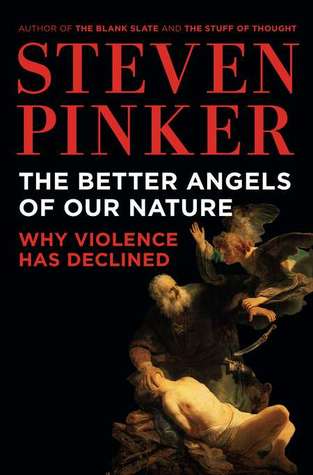The Myth of Pure Evil
The myth of pure evil gives rise to an archetype that is common in religions, horror movies, children’s literature, nationalist mythologies, and sensationalist news coverage. In many religions evil is personified as the Devil—Hades, Satan, Beelzebub, Lucifer, Mephistopheles—or as the antithesis to a benevolent God in a bilateral Manichean struggle. In popular fiction evil takes the form of the slasher, the serial killer, the bogeyman, the ogre, the Joker, the James Bond villain, or depending on the cinematic decade, the Nazi officer, Soviet spy, Italian gangster, Arab terrorist, inner-city predator, Mexican druglord, galactic emperor, or corporate executive. The evildoer may enjoy money and power, but these motives are vague and ill formed; what he really craves is the infliction of chaos and suffering on innocent victims. The evildoer is an adversary—the enemy of good—and the evildoer is often foreign. Hollywood villains, even if they are stateless, speak with a generic foreign accent.
The myth of pure evil bedevils our attempt to understand real evil. Because the standpoint of the scientist resembles the standpoint of the perpetrator, while the standpoint of the moralizer resembles the standpoint of the victim, the scientist is bound to be seen as “making excuses” or “blaming the victim,” or as trying to vindicate the amoral doctrine that “to understand all is to forgive all.” (Recall Lewis Richardson’s reply that to condemn much is to understand little.) The accusation of relativizing evil is particularly likely when the motive the analyst imputes to the perpetrator appears to be venial, like jealousy, status, or retaliation, rather than grandiose, like the persistence of suffering in the world or the perpetuation of race, class, or gender oppression. It is also likely when the analyst ascribes the motive to every human being rather than to a few psychopaths or to the agents of a malignant political system (hence the popularity of the doctrine of the Noble Savage). The scholar Hannah Arendt, in her writings on the trial of Adolf Eichmann for his role in organizing the logistics of the Holocaust, coined the expression “the banality of evil” to capture what she saw as the ordinariness of the man and the ordinariness of his motives.42 Whether or not she was right about Eichmann (and historians have shown that he was more of an ideological anti-Semite than Arendt allowed), she was prescient in deconstructing the myth of pure evil. 43 As we shall see, four decades of research in social psychology—some of it inspired by Arendt herself—have underscored the banality of most of the motives that lead to harmful consequences.
Notes:
Taxonomies:
/law, govt and politics/politics/foreign policy (0.464541)
/society (0.412502)
/religion and spirituality/judaism (0.364001)
Keywords:
pure evil gives (0.978272 (negative:-0.216045)), pure evil bedevils (0.921553 (negative:-0.877905)), popular fiction evil (0.906214 (negative:-0.606424)), bilateral Manichean struggle (0.799701 (negative:-0.244970)), sensationalist news coverage (0.774764 (neutral:0.000000)), scholar Hannah Arendt (0.761983 (neutral:0.000000)), James Bond villain (0.745937 (positive:0.444080)), real evil (0.726018 (negative:-0.877905)), generic foreign accent (0.724854 (negative:-0.585475)), Recall Lewis Richardson (0.711153 (negative:-0.484855)), nationalist mythologies (0.622002 (neutral:0.000000)), Adolf Eichmann (0.610548 (neutral:0.000000)), benevolent God (0.604969 (negative:-0.244970)), children’s literature (0.604436 (neutral:0.000000)), inner-city predator (0.597205 (neutral:0.000000)), horror movies (0.596280 (positive:0.236997)), amoral doctrine (0.593520 (negative:-0.217138)), Italian gangster (0.593346 (neutral:0.000000)), cinematic decade (0.591704 (positive:0.256449)), Arab terrorist (0.588076 (negative:-0.360221)), corporate executive (0.586620 (negative:-0.208415)), galactic emperor (0.584480 (neutral:0.000000)), Soviet spy (0.583772 (negative:-0.323779)), Mexican druglord (0.582470 (neutral:0.000000)), Hollywood villains (0.581432 (neutral:0.000000)), Nazi officer (0.581320 (neutral:0.000000)), serial killer (0.580475 (negative:-0.588810)), innocent victims (0.580457 (negative:-0.692216)), evildoer (0.579647 (negative:-0.604111)), social psychology—some (0.566690 (negative:-0.568733))
Entities:
Hannah Arendt:Person (0.860227 (negative:-0.272893)), Adolf Eichmann:Person (0.823736 (neutral:0.000000)), analyst:JobTitle (0.702095 (negative:-0.558909)), Arendt herself—have:Person (0.637904 (neutral:0.000000)), scientist:JobTitle (0.578868 (negative:-0.605677)), Beelzebub:Movie (0.578035 (neutral:0.000000)), Lewis Richardson:Person (0.493601 (negative:-0.484855)), James Bond:Person (0.489522 (positive:0.444080)), Hollywood:City (0.484556 (neutral:0.000000)), officer:JobTitle (0.451115 (neutral:0.000000)), executive:JobTitle (0.444677 (negative:-0.208415)), four decades:Quantity (0.444677 (neutral:0.000000))
Concepts:
Adolf Eichmann (0.979478): dbpedia | freebase | yago
Hannah Arendt (0.942672): dbpedia | freebase | yago
Banality of evil (0.892983): dbpedia | freebase
Eichmann in Jerusalem (0.884145): dbpedia | freebase | yago
Evil (0.655270): dbpedia | freebase
The Holocaust (0.637326): dbpedia | freebase
Nazi Germany (0.616836): dbpedia | freebase | yago
Adolf Hitler (0.590824): dbpedia | freebase | opencyc | yago | musicBrainz





